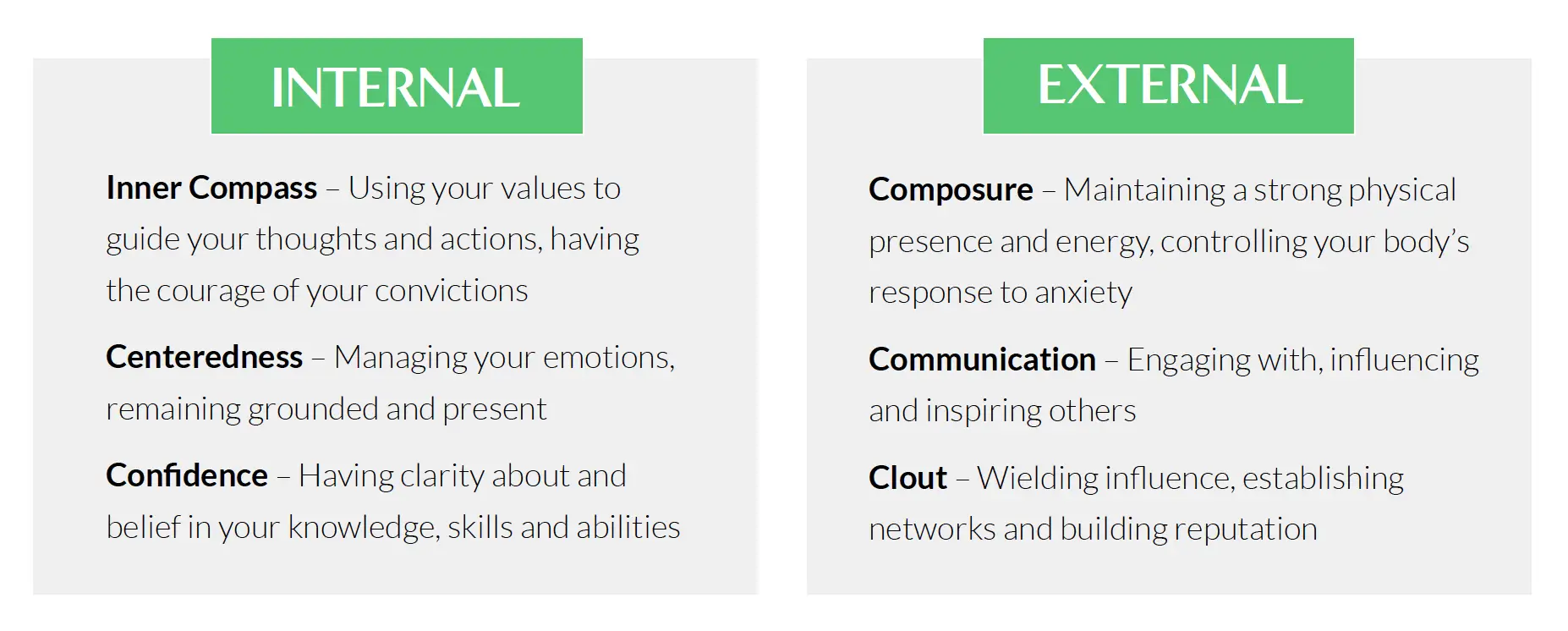
What makes someone a leader? It goes without saying that to get to where you are, you must have achieved meaningful job performance. But being truly respected and admired as a leader requires far more than just hitting numbers.
For example, you may have the skills, but are you seen as an authority whom others seek out for advice? You may have good ideas, but can you present them with confidence and credibility to any audience? You may be analytical, but can you make difficult decisions under pressure that convey your good judgment and courage? You may have a title, but can you set a vision that inspires a team to follow you into battle?
All of these questions point back to one thing—the "it" factor — or what is commonly called executive presence.
Executive presence is often thought of as the unique combination of your personal traits and outward behaviors that can significantly influence the impression others have of you. While some might think it is solely dependent upon how you present yourself to the world, executive presence is actually a two-sided experience that includes two things:
Both are key for you to develop an authentic and sustainable executive presence. Compelling leaders have six traits—three internal and three external.

While you may have natural strengths in several areas, you need to develop your capabilities in each aspect of executive presence as much as possible. An integrated approach will increase your chances of establishing the executive presence you want.
The best way to begin strengthening your executive presence is with a self-assessment. This will allow you to thoughtfully identify where you are strong and what gaps you need to close.
I have developed a comprehensive self-assessment for my clients. Here are a few questions from that questionnaire to help you get a feel for your capabilities in each of the six areas.
Using your values to guide your thoughts and actions, having the courage of your convictions
Managing your emotions, remaining grounded and present
Having clarity about and belief in your knowledge, skills and abilities
Maintaining a strong physical presence and energy, controlling your body's response to anxiety
Engaging with, influencing and inspiring others
Wielding influence, establishing networks and building reputation
Of the six categories, where are your strengths? Where are your weaknesses? It's likely you have some of both.
If you're looking to level up your leadership, and empower your team, consider my keynote speaking. With over 20 years of experience as a founder, executive coach and leadership strategist, I bring practical strategies that you can implement, today.



